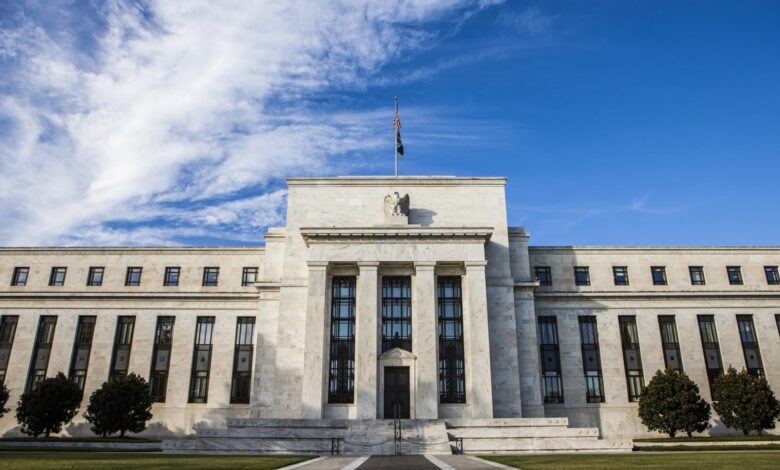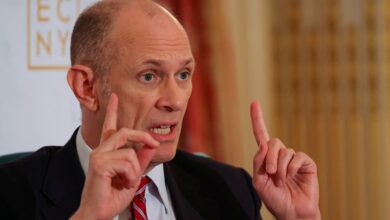Biggest banks planning to sue the Federal Reserve over annual stress tests

A general view of the Federal Reserve Building in Washington, United States.
Samuel Corum | Anadolu Agency | Getty Images
The biggest banks are planning to sue the Federal Reserve over the annual bank stress tests, according to a person familiar with the matter. A lawsuit is expected this week and could come as soon as Tuesday morning, the person said.
The Fed’s stress test is an annual ritual that forces banks to maintain adequate cushions for bad loans and dictates the size of share repurchases and dividends.
After the market close on Monday, the Federal Reserve announced in a statement that it is looking to make changes to the bank stress tests and will be seeking public comment on what it calls “significant changes to improve the transparency of its bank stress tests and to reduce the volatility of resulting capital buffer requirements.”
The Fed said it made the determination to change the tests because of “the evolving legal landscape,” pointing to changes in administrative laws in recent years. It didn’t outline any specific changes to the framework of the annual stress tests.
While the big banks will likely view the changes as a win, it may be too little too late.
Also, the changes may not go far enough to satisfy the banks’ concerns about onerous capital requirements. “These proposed changes are not designed to materially affect overall capital requirements, according to the Fed.
The CEO of BPI (Bank Policy Institute), Greg Baer, which represents big banks like JPMorgan, Citigroup and Goldman Sachs, welcomed the Fed announcement, saying in a statement “The Board’s announcement today is a first step towards transparency and accountability.”
However, Baer also hinted at further action: “We are reviewing it closely and considering additional options to ensure timely reforms that are both good law and good policy.”
Groups like the BPI and the American Bankers Association have raised concerns about the stress test process in the past, claiming that it is opaque, and has resulted in higher capital rules that hurt bank lending and economic growth.
In July, the groups accused the Fed of being in violation of the Administrative Procedure Act, because it didn’t seek public comment on its stress scenarios and kept supervisory models secret.
CNBC’s Hugh Son contributed to this report.




